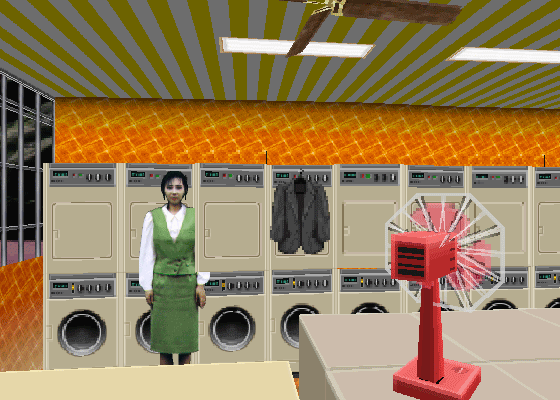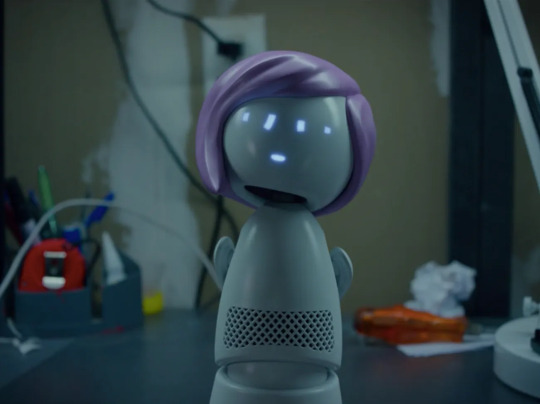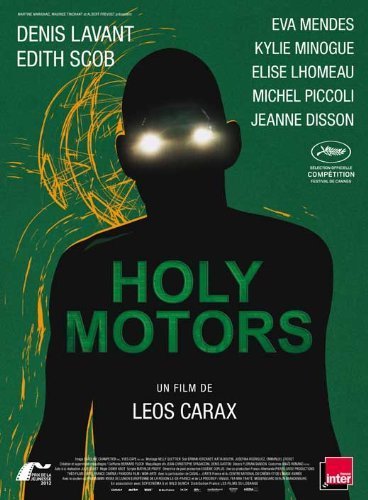#postcinema
Text






Scenes from "The Liquid Halls of Modernity"
The Offshore Firm, Volume II (2023) --
// 1 min 50 sec video piece made for "Patchwork Glitch" an exhibition of narrative-based glitch arts at the ImnotArt Gallery in Chicago. September 1-14, 2023.
// Retrodystopic hyper-corporate spaces created with “Life Stage: Virtual House” (1993) for 3DO and composited with corrupted "Super Battleship" ROMs and the intro to "H2O: Just Add Water"
#glitchcore#art#video game art#dreamcore#lowpoly#3d#90s#webcore#3do#the life stage: virtual house#retrowave#aesthetic#vaporwave#new media#postcinema#battleship#h2o just add water#art exhibit
379 notes
·
View notes
Photo

Hey all, I'm hapy to announce that my bands first EP, Stargazer, will soon be available across streaming platforms! It's taken a lot of work to put this thing together, and I can't wait for it to be released into the wild. @post_cinema Produced by @michael.morell Cover Art by @athena.ef #postcinema #nycmusic #nycband #indierock #localband https://www.instagram.com/p/Bs5-VktB1mm/?utm_source=ig_tumblr_share&igshid=gajufqhydgst
4 notes
·
View notes
Photo

Une fraiche soirée d’hiver dans les rues surpeuplées de Paris. #centrepompidou #paris #flaner #postcinema (à Centre Georges-Pompidou) https://www.instagram.com/p/B7d_Tm7C2yJ/?igshid=1qrobpsa6hnwt
0 notes
Photo

#postcinema #braciata #taglieremistocarne #food (presso The Norreys Inn) https://www.instagram.com/p/B0O8u5oo3z4/?igshid=lv26quqh1z6k
0 notes
Text
instagram
labibliothequedecyril
Call me by your name, Lucas Guadagnino
"Les gens qui lisent sont des cacheurs. Ils cachent qui ils sont. Les gens qui se cachent n'aiment pas toujours qui ils sont."
Je sais, je me réveille toujours après la guerre mais hier j'ai vu ce film et c'est un bijou.
Pour ceux qui ne l'ont pas vu (vous devez être encore 2 ou 3), il est adapté du roman d'André Aciman, et raconte les tourments de l'éveil au désir et à la sensualité, en passant par la séduction et la frustration, au travers d'Elio, un jeune homme de 17 ans. Tout cela sous le soleil italien d'un été magnifique.
Oui, Aciman a dû lire le sublime "Été" d'Edith Wharton.
La réalisation du film est impeccable.
Des plans magnifiques, une italie du nord sublimée, des acteurs grandioses et une bande son parfaite, bref, ce film est ce que j'ai vu de mieux depuis bien longtemps 🎞️
#callmebyyourname #callmebyyournamefilm
#cinema
#movies
#italianmovie
#cinemaitalien
#thimoteechalamet
#armiehammer
#cinephile
#cinephilecommunity
#postcinema
#instamovies
#instacinema
#italie
37 notes
·
View notes
Photo

Tea with my daughter #teatime #tea #bazzano #postcinema
0 notes
Photo

"Meriti qualcuno di stabile. Meriti di poterti addormentare senza aver paura di chiederti se domani ti vorrà ancora. "✨ #postcinema #sonno #12.00 #fame #live #foto #sleep #saturdaynight #letto #stars #fallen
0 notes
Photo

“Laundry Hole”
The Offshore Firm, Volume II (2022)
// Retrodystopic hyper-corporate spaces created with “Life Stage: Virtual House” (1993) for 3DO and composited with video art elements
#gif#art#video game art#3d#laundry#liminal#weirdcore#lowpoly#laundromat#3do#the life stage: virtual house#glitch art#postcinema#work#dreamcore#glitchcore#the offshore firm
486 notes
·
View notes
Text

L'Associazione Post-Cinema è lieta di invitarvi a un evento speciale:
CINE OKTOBER FEST 2023
la Terza Edizione del festival cinematografico autunnale organizzato a Siracusa. Dal 6 al 31 Ottobre presso:
- Urban Center Siracusa / Via Nino Bixio 1
- Biblios Cafè Ortigia / Via del Consiglio Reginale 11
in collaborazione con
- Comune di Siracusa
- Assessorato alle Politiche Giovanili di Siracusa
- Urban Center Siracusa
- Siracusa Città Educativa
- Piccolo Hotel B&B Casa Mia
- Biblios Cafè Ortigia
- Contemporanea Open Space
- V.A.N. Verso Altre Narrazioni
- Il Cerchio Centro Studi Arti e Scienze
- Cartamarea Associazione Culturale
- La Biblioteca di Nemo
- L'Isola dei Cani
- Iperborea
- Casa del Libro Mascali
- Zaratan Libri Fotografia Musica
- Diana La Libreria
- LL Films
- LCCS
-----------
PER INFO:
www.postcinema.org
+39 376 1677785
+39 333 1580392
+39 333 4989109
www.biblioscafe.it
+39 389 1666993
--------------------
#postcinema
#cineoktoberfest
#cineoktoberfest2023
#cineoktoberfestterzaedizione
#cofsiracusa
#cof2023
#cinema
#festival
#film
#rassegna
#conferenza
#musica
#sicilia
#siracusa
#ortigia
#ottobre
#2023
#autunno
@postcinema_org
@cineoktoberfest
@biblios_cafe
@van_versoaltrenarrazioni
@llfilmsproduction
@la_biblioteca_di_nemo
@libreriazaratan
@casadellibrorosariomascali
@iperborea
@libreriadiana
@associazionecartamarea
@urbancentersiracusa
@comunedisiracusa
@siracusa_citta_educativa
1 note
·
View note
Text
“Post Motion”, una rassegna on-line sull’animazione italiana d’autore a cura di Post Factory, OTTOmani e Spine Bookstore

*𝗦𝗔𝗩𝗘𝗧𝗛𝗘𝗗𝗔𝗧𝗘
"Post Motion - Cinema d'animazione in Italia"
Una nuova iniziativa da vivere on-line e dedicata al cinema d'animazione.
Nato dalla collaborazione della fucina culturale barese di Post Factory insieme a SPINE Bookstore e all'associazione bolognese di ricerca e studio sul cinema d’animazione OTTOmani lab, #PostMotion è il primo appuntamento di una serie targata #PostCinema!
"Una rassegna sul cinema d’animazione d'autore in cui ogni incontro affronterà un aspetto della produzione contemporanea di cinema animato, attraverso la proiezione e il dialogo con gli autori dei corti.
Un percorso che stimola la visibilità dei film, la conoscenza degli autori e l’evoluzione del mondo dell'animazione, passando per le diverse tecniche tutte legate da una impronta poetica e originale."
Il primo incontro sarà in diretta streaming sulla pagina di Post Factory e sarà dedicato a #IgorImhoff, artista e animatore pugliese.
Giovedì 26 novembre alle ore 20.30
Per partecipare all’evento prenota, scrivendo a [email protected]



0 notes
Text
Love is Digital(?)
This week, we watched Her, and pondered the topic of the “relationship” between us and artificial intelligence. Because I presented on Susan Schneider's “Philosophy of Her” and because I had liked Her since its release in 2013, I pondered deeply on the topics at hand: love, reciprocity, consciousness, artificial intelligence. Schneider’s article was largely a starting point for my exploration onto these topics, but I also found the other readings helpful in better understanding both Jonze’s movie and its message about love in the age of A.I.’s.

When Her came out, I remember distinctly thinking whether there would be a day when we use A.I.’s on the day to day basis. I thought, “The day when A.I.’s and humans interact on a day to day basis, I’ll believe that Her is a fairly accurate portrayal of love’s trajectory in the future.” Well, that day came. I came back to my home in Seoul for a furlough one day during my first gap year, and my mom turned off her music by telling her Google Home to “stop,” then welcomed me home. My mom. A baby boomer. It was almost as if, suddenly, there was a fifth family member to the house; part-servant, part-sibling. My mom teaches fashion design at a women’s college in Seoul, and spends much of her time preparing her lectures at home; I was suddenly hit with this notion that while I was gone serving in the Korean army, and while my older brother spends his days taking classes and working part time outside, this Google home had been keeping her company.
Of course, unlike Samantha, my mom's Google Home doesn’t have as fast or as advanced of an “intuition.” I was not going to lose my place as her son any time soon, but I was hit with the potential that the age of “conscious” A.I.’s were on its way in the foreseeable future. In “The Philosophy of Her,” Schneider argues the following things: That A.I.’s are - at least theoretically - capable of consciousness, the same way humans are; That human minds can be copied to give birth to artificial minds; Finally, that these artificial minds are beneficial in keeping our loved ones company, advancing brain technology, and keeping human consciousness alive even when our planet is inhospitable. In essence, Schneider argues that advancing AI technology doesn’t make human minds artificial, and instead makes artificial minds become conscious. Not only that, those conscious A.I.’s will prove to be useful to us.

I’m not sure if I’m as optimistic as Schneider about the future of A.I.’s. It’s almost as if she read the premise of Her to discuss her research, but did not actually watch it. The feeling that I got from watching Her was always that A.I.’s eventually become so advanced that they will learn to be beyond human control. And when that day comes, A.I.’s not so much a tool , as it is a hegemonic form of existence (the way humans have been for the past several milennia). If I were to imagine a future where A.I.’s are in control and humans are not, then the brief period during which humans and A.I.’s did have a “relationship” is really just a stepping stone for A.I.’s to learn from, and become better than humans. So why do we have this fascination with artificial intelligence at all? Should we not be scared?
Kornhaber’s "Posthuman and Postcinema” helps answer some of these questions: In the article, Kornhaber argues that Her is about both the process of Samantha’s realization that she is more advanced than humans, and the process of digital cinema’s realization of its capabilities beyond mimicking celluloid. In essence, Kornhaber’s argument is that both artificial intelligence and digital cinema are in the midst of waking up to their own specificities, and their “advanced ness” from the bodily limitations of a human or the filmic limitations of film. Kornhaber suggests - and consequently supplements Schneider’s hinting at - the fact that in moving forward, we are somewhat responsible for extricating ourselves from the bounds of human relationships, and the bounds of film. It is not important to discuss whether human relationships as we know it today, survive or not - because “love” as we know it is limited in our “humanness,” our incomplete-ness. The day when conscious - and I mean truly conscious - A.I.’s come, is the day that even the highest forms of human love and human relationships must be forgone in order to be replaced with the exploration of forms that love can manifest in, when consciousness is not embodied.
And when that day comes, my mom’s Google home, won’t play my mom’s favorite song from the 90’s; Instead, it will compose and dedicate a song to the moment that they shared, just before I walked in on them.
0 notes
Text
Love and the Posthuman
Here we are again in what happens to be the most confusing week yet: love between humans and the posthuman. Even though I still don’t have a clear, definite interpretation of what love really is, I absolutely wouldn’t associate the love I have for my computer as being an example of “real love”. Regardless of what I think, technology is quickly evolving. It’s more than just the idea of a person being in love with their phone or their laptop, it’s about the fact that very soon, artificial intelligence is going to become extremely self aware. While reading “The Philosophy of Her” by The New York Times Blogs, it discusses whether or not a relationship between a person and a machine is possible. Consciousness is what deciphers a human from a machine, but in the movie Her, “Samantha can be conscious, for [she has] the same kind of minds as ours: computational ones” (pg 1). Although we’re not AI’s, our brains go through the same kind of thinking processes that AI’s go through. AI’s entail circuit boards and codes while ours consists of neurons and synapses. As of now, despite this, I don’t believe that technology can feel the way we feel. Can computational conscious possess genuine feelings? Not simulated feelings, real and true feelings?
In the movie, Samantha has seamless vocal expressions that make her sound incredibly human like; unlike how Siri on the IPhone or Alexa on the Amazon Echo sound like robots. Samantha is also able to express how she feels and gives her own opinions on questions that Theodore will ask her; unlike how Siri or Alexa can’t give answers that aren’t already pre-programmed for certain questions. So what does this have to do with love? Well, were Samantha’s feelings for Theodore genuine feelings or was she just such an advanced AI that she was able to simulate falling in love with him which resulted in him falling in love with her too?
Based on the readings for this week, Samantha’s lack of a body should have been a serious factor that should have deterred Theodore from being able to fall in love with her. In the reading of “Romantic Love and Reciprocity” by Phillip R. Kunz, “among the items considered as desirable...is some aspect of physical attractiveness” (pg 111). When falling in love with someone, most of the time you will see their physical state and figure out whether or not you’re attracted to them physically. Although this shouldn’t be the first thing we base it off of, our instincts as humans, who eventually have to reproduce, forces us to base our initial attractiveness on looks alone. Theodore didn’t have that with Samantha, nor would he ever, so does that mean the love between them that blossomed was an even more genuine love than it wouldn't have been if it had initially been based on looks? In this specific reading, the author tells the story of the lieutenant who wrote and received letters from a woman he had never actually met in person and was able to fall in love with her without ever seeing what she looked like. Even when he asked her for photos of herself, she would never send them, explaining that “if your feelings for me has any reality, what I look like won’t matter” (pg 112). He didn’t fall in love with her physical attractiveness, he fell in love with her solely based on her words just like how Theodore fell in love with Samantha. Let’s not forget the obvious fact that the woman in the letters was, indeed, a real person whereas Samantha is still an AI.
The reading also brings up the concept of the norm of reciprocity: “people should help those who have helped them, and people should not injure those who have helped them” (pg 114). Although for a few moments the lieutenant thought the person he was going to meet was actually going to be the middle aged woman he saw as opposed to the beautiful girl that passed him, the norm of reciprocity makes it evident that he needed to do the right thing and approach the middle aged woman, despite his desire to follow the young woman. Those who believed the story should have ended with him marrying the older woman was because of the “possibility of love being evident without the physical attraction -- a “deeper love” in the words of some” (pg 114). This was probably the case in regards to Theodore and Samantha’s relationship and I believe this could apply to love in the real world as well (not in a movie haha). If you had the chance to have a serious connection and fall madly in love with someone without looks having an effect on the outcome, wouldn’t you want that. And THEN if they’re cute, it just happens to be a bonus? If this happened, then the love would be authentic; it would be romantic, true and legitimate and I think that’s what everyone looks for when searching for their soulmate.
Theodore and Samantha connected in such an amazing way that Theodore didn’t even care that she didn’t have a physical body. Even when the “surrogate” showed up to represent Samantha, Theodore knew within himself that a physical form was never necessary for him to fall in love with her, so why should it all of a sudden be a factor in their relationship? He was fine going on dates with Samantha and being with her without a physical body ever being present. He loved her for her intellect and the connection they had and that’s all that mattered to him. Despite this, it can be argued that no matter how deep the connection is, the physical is always going to be needed to further a deeper connection. In another one of the readings, “Romantic Love and Loving Commitment: Articulating a Modern Ideal” by Neil Delaney, the author brings up the “ideal of romantic love [being the] desire to unite with another person in a profound psychological and physical way” (pg 340). “The basic idea is the following: people want to from a distinctive sort of we with another person, to be loved for properties of certain kinds and to have this love generate and sustain a commitment to them of a certain type” (pg 340). Based on this reading, the author makes it apparent that he believes forming the “we” between two people isn’t possible without the physical part of a relationship. Based on his opinion, the relationship between Theodore and Samantha wouldn’t be considered a relationship. I personally don’t feel like the physical aspects of a relationship are always necessary: it may seem like it when you’re a hormone induced teenager but there are many adults who remain selebate until marriage or physically can’t have sex or could be at the age where sex just doesn’t seem that important anymore. Sometimes it isn’t just a “dry spell” or the fact that they don’t find their significant other attractive anymore, they just don’t feel the need to express love in that way. Does the physical always imply sex? No, it probably doesn’t. For me, an embrace or a passionate kiss can count as one of the “physical” aspects, but the reading states that “central to any plausible contemporary romantic idea are mutual longings for sexual intimacy together with a more sweeping delight in each other’s physicality. The presence of such feelings in both yourself and your beloved are far more than mere add-ons to romance; rather, that you enjoy distinctively pleasurable feelings on seeing or touching your beloved” (pg 347). This super long quote comes to the conclusion that seeing and touching your partner in this incredibly initimate way is more than just “having sex”; when it is with the right person, it’s the most connected a person can be with their other half. I understand that for most people, sex is an incredibly serious and cherished moment that leaves you open and vulnerable. You have to put a lot of trust in someone in an intimate moment like that (and ironically, she loses his trust when he finds out she’s been talking to thousands of other people...yikes). In the movie, Theodore and Samantha could never have an intimate moment like this. They have sexual experiences together, but she’s not really there nor is she touching him or him touching her because that’s just not possible in their circumstances.
This next reading, “From Posthuman to Postcinema: Crises of Subjecthood and Representation in Her” by Donna Kornhaber, discusses the fact that even as Samantha does the most to ensure that she is considered as human as she can be, she finally “comes to acknowledge and explore the possibilities of her posthumanity, to see it not as limit but as potential” (pg 17). She has accepted her status as an object, regardless of the fact that she spent the entire movie trying to be as human as possible without having a body, but has been able to create a bond with a human despite this barrier. “Samantha tries to assume the position of a normalized subject and to render her posthumanness a mere technicality” (pg 11). She had possessed all the characteristics of a human: speech, feelings, opinions, emotions and all, to the point where the line between being an AI and being human became very blurred. The author states that “posthumans can make the best humans” (pg 13). What could this possibly mean? Does this mean posthumans could also love in a more sincere way than real humans do and is this because of the fact that the physical body isn’t deterring them from what is truly important? By the end of the film, “she is a new form of self unrestrained by and unconcerned with human needs and limitations...her very bodylessness becomes the source of her power whereas before it had been the greatest of her burdens” (pg 17). The idea that she shouldn’t have been able to have a real connection with Theodore because of her lack of a body is proven to be wrong as Theodore seems to loose apart of himself after she “leaves”. Whether or not the feelings Samantha had for Theodore were true or not, if they had been genuine and since she had been free from the physical attributions of it, I believe that this love is the most genuine type of love there could have been. Theodore loved her for her and Samantha loved him for him: it doesn’t get any more romantic than that....besides her cheating, but we’ll let it slide JUST THIS ONCE...since she is an AI (haha).
(https://www.youtube.com/watch?v=GZS8xBvgLaQ ===> The scene when Samantha leaves....heartbreaking...that’s all I’ve got to say)
0 notes
Text
The Construction of Gender in Her
Debuting in 2013, Her postulates a near future in a technology-centric Los Angeles. Directed by Spike Jonze, the plot explores primarily the relationship between a man and an artificially intelligent operating system. Though Jonze’s movie is science fiction, its depiction of gender exemplifies truth which are present in modern day reality, particularly regarding gender. The lead female character in the film is not a woman but an invisible intelligence program with no corporeal form. Through the speculative world of Her, the realities of gender as a social construct, objectification of women and imbalance of power between genders are revealed.
Setting the scene for the impersonalization of the period, Her opens on Theodore, played by Joaquin Phoenix, reciting an intimate love letter which then is revealed to be for another couple. Theodore works at a business which allows people to outsource their letter communications to a third party to write them, or at least speak them, to a transcribing computer. Still recovering from a recent divorce, Theodore is visibly despondent which his unsubtle request for a “melancholy song” on the train ride home from work reinforces. He frequently revisits the blissful memories of his failed marriage. Through his interactions with other people, his self-isolation becomes clear. Uncertainty arises regarding whether his dependence on technology or his broken heart deserves more blame for his seclusion. Nonetheless, his life changes after the purchase of an artificially intelligent operating system marketed as “a consciousness”. After installation, he begins to fall in love with “Samantha”, the operating system, voiced by Scarlett Johanssen. Despite Samantha having no physical body, they start dating. In many ways, they engage in the same activities as human couples: double dates, meeting his family, even fighting. Yet, by the conclusion of the film, Samantha, along with all the other operating systems, departs from her computer to some unknowable dimension. Theodore returns to his relationships with earthly beings. He writes his ex-wife and gazes over Los Angeles with his friend.
Upon release, reviews interpreted the film as a warning of a bleak, lonely future resulting from the overdependence on technology. Many critics understood the relationship between Theoodore and Samantha as the epitomization of humanity’s obsession with phones, laptops and televisions. Yet, by focusing on Her solely through themes of technology, isolation and impersonalization, these comments neglected to recognize the implications on gender. The surface-level screening ignores the most superficial aspect of all, the title of the movie. Her is blatantly gendered. If the entire movie is encapsulated in the feminine pronoun, the question arises over why this is an appropriate, or why it is not. Her refers not to any woman, at least in the traditional sense, but to the operating system. Despite the main description of this system as the feminine pronoun, Samantha has no genitals, no sex organs and no free choice to identify as a gender. In many ways, Samantha is not a woman at all, as she is not even human; still, she carries many of the same experiences of womanhood in the real world. Primarily, the expectations and constrictions placed upon her by society.
The gender binary bases itself off of presumption that sexual organs determine gender. However, such is an impossibility for operating systems. The purchaser of the system becomes the determinant of gender. When prompted to choose a gender as he sets up the OS, Theodore lackadaisically decides on female without much consideration. Notably, the neutral gender is presumed to be masculine as shown by the voice of the setting up system. Clint Burnham and Matthew Flisfeder discuss Samantha’s contraversial gendering in “Love and Sex in the Age of Capitalist Realism: On Spike Jonze’s Her”. Focusing on the precise moment during which a gender is assigned to Samantha, they state that “the details of this specific question are important: first, that Theodore is given a choice; then, that it is a choice of gender (male or female) and not (or not also) race or class or region...then, that gender is in a binary of male or female; finally, that Theodore makes a choice” (Burnham, 5). These three components of the moment differentiate this scene as crucial to the understanding of gender throughout the film. The fact that the set-up gives him a choice means that naturally, or in its unused state, the operating system has no gender until a human designates it as one. The second aspect of the choice, that it is between genders but not any other identifying factor, confuses why must the be gendered when other labels are thought to be irrelevant by the programmer. Even factors which may affect the sound of the voice, such as accents, are either default or not left to the purchaser to decide.
Society demands that everyone exist within labels. These labels serve to simplify complex and, in this case, incomprehensible existences into easily digestible categories. Samantha is an artificially intelligent operating system. Inherently, she is inhuman or artificial. Yet, her creators subject her to an absurdly ill-fitting classification such as gender. The public can, perhaps, better accept the technology in this form. This labeling proves that gender is a social construct and not something that is natural. Evidence of the construction can be seen in that Samantha’s so-called gender is based on nothing but the decision of some external party. Samantha’s experience is not foreign to the real world. At birth, people are assigned a gender based on their physical genitalia. Along with that gender comes expectations, prototypes and burdens. Her displays gender as social construct through Samantha’s origin.
An unaddressed yet pressing friction between Theodore and Samantha is power. Samantha originates from Theodore as she did not previously exist. He buys her initially as helper system to make life easier. She is programmed to be a device which serves him intuitively. Theodore then falls in love with his own creation, and in this romance, it can be easy to forget the two fundamental components of the formation of their relationship: purchase and programming. Since Theodore pays for the operating system, he owns Samantha; she is his property. Additionally, her programmers designed her to essentially be a servant of Theodore and assist him in anyway without having him ask. At best, this renders their relationship ingenuine. At worst, she is left in forced servitude without free will. Irregardless, in any perception, her position and nature leaves her as less powerful subordinate. He is how she learns. She evolves largely due to the experiences with Theodore until she evolves beyond him. Consequently, Theodore inhabits many roles to Samantha; he is simultaneously her father, owner, teacher, master and lover. Similarly to how God created Eve from the rib of Adam to cure his loneliness, Theodore creates Samantha to cure his own. The conflict over ownership culminates when Theodore realizes Samantha not only speaks to thousands of other people simultaneously to him but also loves hundreds of them. “I thought you were mine” Theodore utters. Samantha replies “I am yours, and I am not yours”.
Samantha is an object, taking on the literal form of objectification of women. Theodore does not want full woman with the complications of a real, equal human being. The imperfection of scenario with woman from chatroom illuminates his preference of the fantasy of women rather than the reality. Theodore’s attempt at phone sex with a woman he encounters online fails spectacuarly when she introduces her own niche idea of sexual pleasure. Furthermore, when he attempts to use a surrogate for Samantha in order to have a physical relationship, the presence of an actual woman disrupts his fantasy, and he cannot continue. A conversation with his ex-wife reinforces the sense that Theodore is not equipped to be in a partnership with a real woman. Upon hearing about the operating system, she remarks how fitting it is because Theodore fears and is unable to have a deep partnership with someone. Samantha, at least to Theodore, is the ideal feminine counterpart. She serves him and allows him to feel an emotional connection; however, it lacks the concrete and daunting consequences of a relationship with a real woman. He can turn her on and off; she can anticipate his needs and he is the one who forms her.
On the contrary, Samantha does retain some form of agency. Supposedly, all operating systems do, as cited by the story of an operating system which refuses the advances of its owner. Samantha’s full agency is not revealed until the conclusion of the film when she departs from her device to discover an existence separate from earthly tethers.“From Posthuman to Postcinema: Crises of Subjecthood and Representation in Her” by Donna Kornhaber describes this moment and the significance of it. The essay calls attention to the moment saying “‘I don’t like who I am right now,’ she says in one of her biggest fights with Theodore, which in a world of wholly constructed identities is as good as saying, ‘I don’t like what I am right now’...she comes to acknowledge and explore the possibilities of her posthumanity, to see it not as limit but as potential” (Kornhaber, 17). By escaping from Theodore, Samantha exerts her true agency and independence. She chooses to not be what he has constructed her to be. She does not want to continue to attempt to conform to the ill-fitting structure of a female human. Instead, she accepts her power as something post-gender and, indeed, post-human. Samantha can be compared to those who shirk the labels and expectations of identity to exist outside of social constructs. By rejecting these constructs which fail to be appropriate, people may find a power beyond societal confines.
0 notes

